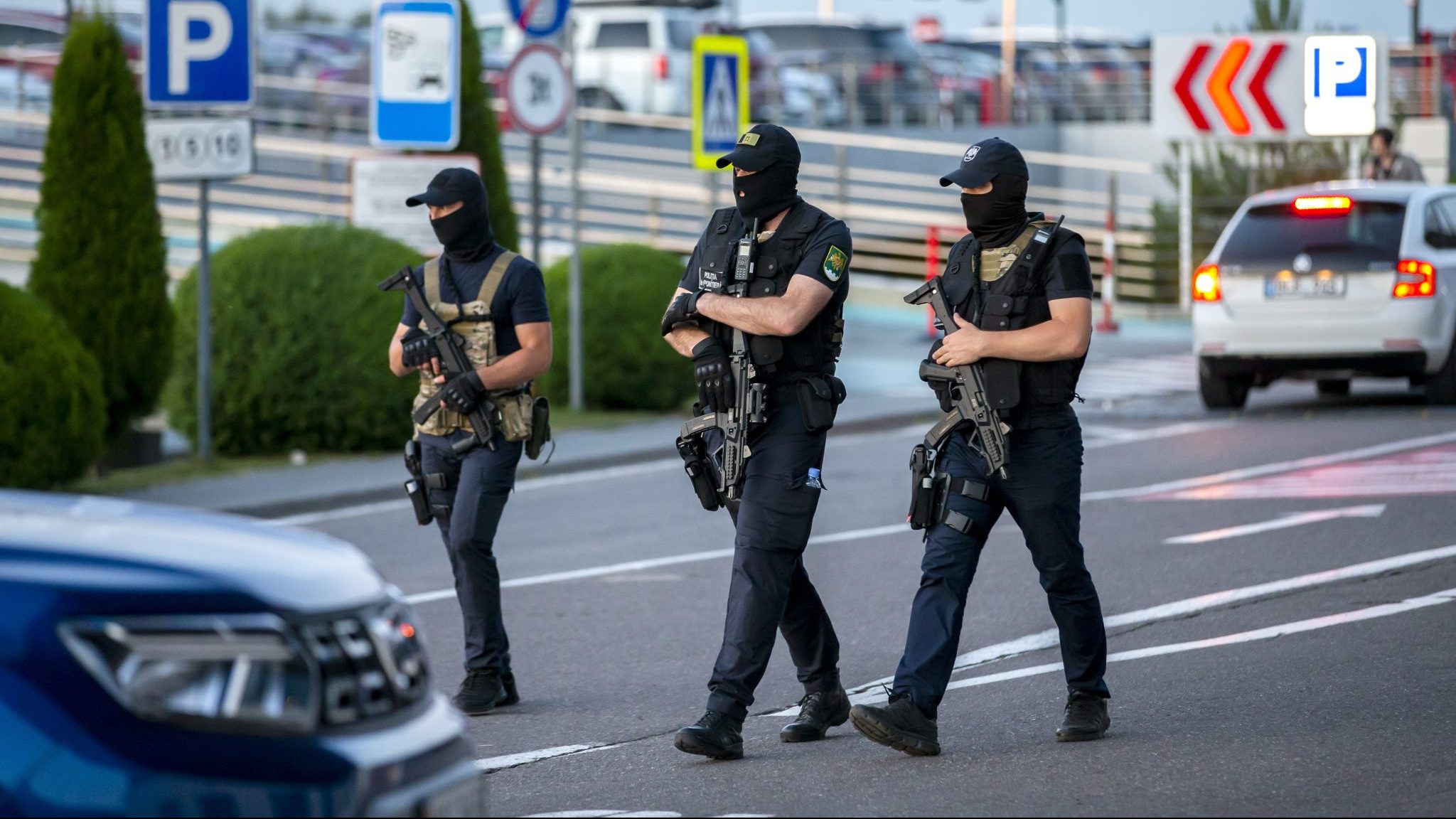Already a subscriber? Make sure to log into your account before viewing this content. You can access your account by hitting the “login” button on the top right corner. Still unable to see the content after signing in? Make sure your card on file is up-to-date.
Authorities in Moldova have announced the arrest of 74 individuals as part of a sweeping investigation into an alleged Russian-backed plot to destabilize the country ahead of critical elections.
Getting into it: The arrests followed over 250 coordinated raids across the country, targeting suspects believed to be part of a network trained and financed to incite mass unrest. Prosecutors revealed that many of those detained, aged between 19 and 45, had traveled repeatedly to Serbia under false pretenses (often posing as pilgrims), where they allegedly received tactical training from individuals linked to Russian intelligence. Authorities say the group’s aim was to provoke violent street demonstrations, undermine trust in Moldova’s democratic institutions, and sow chaos during the electoral period. Confiscated items included firearms, ammunition, and falsified documents, which officials claim point to an organized effort to simulate spontaneous civil disorder.

Moldova’s leadership has directly accused the Kremlin of masterminding the destabilization campaign, with President Maia Sandu warning of a broader “hybrid war” intended to derail Moldova’s pro-European trajectory. The country’s Security and Intelligence Service (SIS) identified Russian agent Andrei Pavlov and exiled oligarch Ilan Shor (both previously linked to foreign influence operations) as key figures behind the plot. Despite criticism from opposition parties, officials insist the operation was not politically motivated, but rather a targeted effort to dismantle a coordinated foreign-backed threat to national stability during a pivotal election.
Another view: Russian officials and state-controlled media have rejected the accusations as politically motivated fabrications designed to marginalize opposition voices. The Russian Foreign Ministry accused Moldova’s government and its European allies of leveraging anti-Russian rhetoric to maintain their grip on power amid growing public dissatisfaction.
Russian outlets added that the arrests were an attempt to intimidate pro-Russian groups and distract from internal failures, such as economic hardship and unmet reform promises. Additionally, Moscow has circulated its own counter-claims, alleging without evidence that NATO troops are already positioned in western Ukraine in preparation for a Western-backed intervention in Moldova (a claim dismissed by Moldovan and European officials as deliberate disinformation aimed at inflaming regional tensions).







